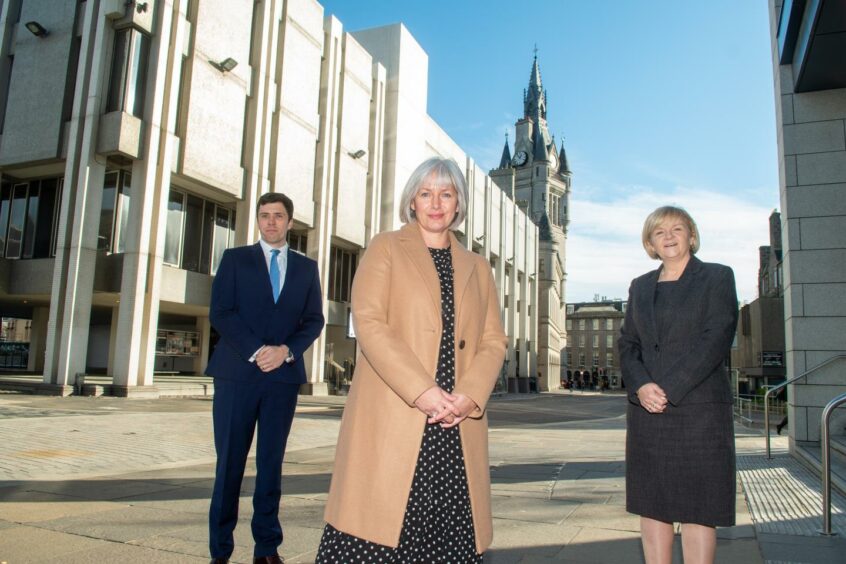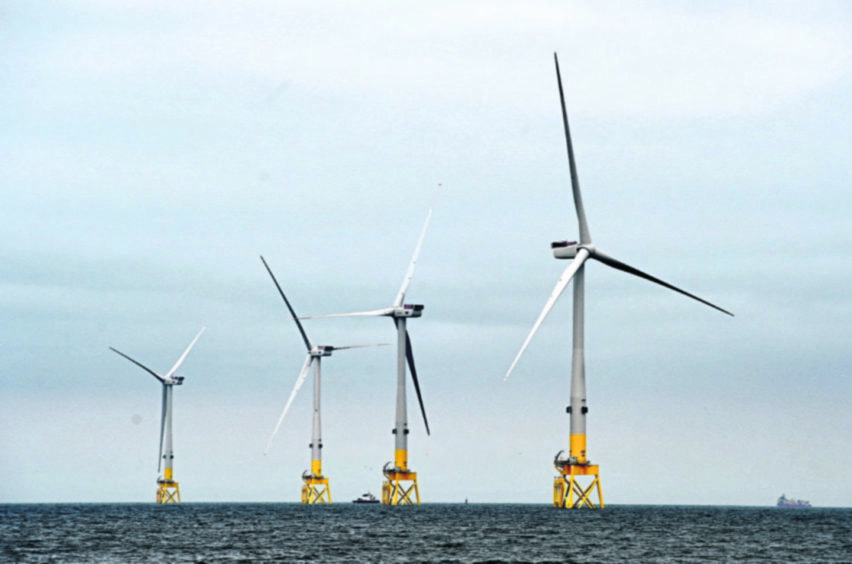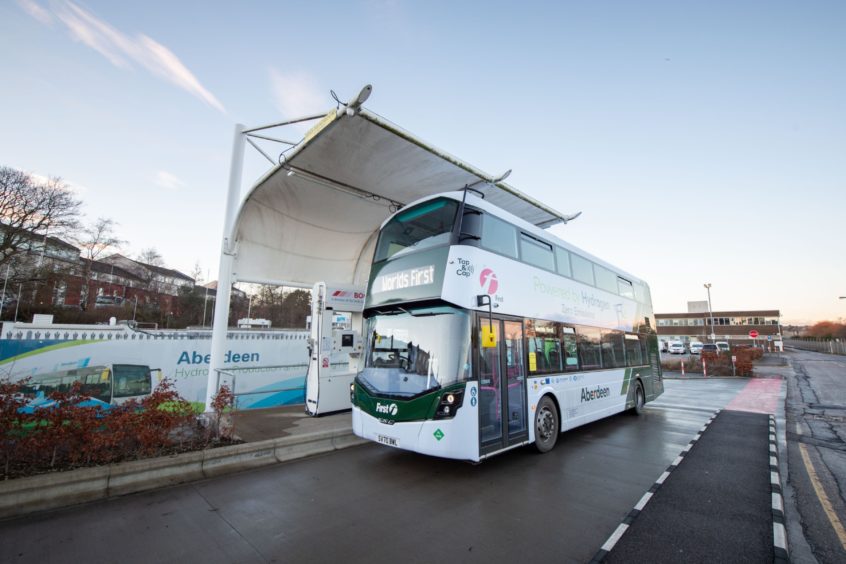
Energy giant BP is to form a joint venture partnership with Aberdeen City Council (ACC) in order to deliver a major low carbon project.
The Aberdeen Hydrogen Hub is to be developed in three phases in response to growing demands for the renewable fuel.
Once complete it will produce, store and distribute green hydrogen, produced using clean energy.
Phase one involves the delivery of a £215 million green hydrogen production and transport refuelling facility powered by a solar farm.
First production is targeted for 2024 when the hub will deliver over 800 kilograms of green hydrogen per day.
That is enough to fuel 25 buses and a similar number of other fleet vehicles.
Offshore wind boom key
ACC and BP (LON: BP) have committed £3m for initial design work with a final investment decision for the phase one facility build expected early next year.
Together the pair will operate under the name BP Aberdeen Hydrogen Energy Limited – Oliver Taylor has been drafted in to head up the venture.
Under the current plans further investment would allow production to be scaled up, meaning the hub could supply larger volumes of green hydrogen for rail, freight and marine.
It could also be used for heat and potentially exported overseas.
Such an expansion would be facilitated by an expected ramp up in the availability of local renewable energy sources.
Hundreds of turbines will be installed in waters around Aberdeen in the coming years after 17 offshore wind projects were successful in the recent ScotWind leasing round.
BP on the transition drive
Partnering with cities and corporates as they shape their paths to net zero is a core part of BP’s strategy as the supermajor ramps up its transition activities.
The London-listed company expects to team up with as many as 15 cities globally by 2030 to provide innovative, integrated, and decarbonised energy solutions.
In doing so it aims to capture 10% of the low carbon hydrogen market in key geographies by 2030.
Louise Kingham, BP’s UK head of country and senior vice president for Europe, said: “BP is investing across all the energy transition growth areas in the UK. In fact, we have committed to spend £2 in the UK for every £1 generated here out to the middle of this decade.
“Today’s announcement is evidence of that commitment in action and is supported by other ambitious plans to produce clean energy from UK offshore wind, develop carbon capture in Teesside and grow the country’s electric vehicle charging network.
“With these new business opportunities underpinned by our long-standing position in North Sea oil and gas, we are showing what an integrated energy company can do.
“And all of this couldn’t be possible without the skills and experience of a talented workforce and supply chain, eager to help make the UK’s net zero ambitions a reality.”
Up to 700 skilled jobs
It was announced in October that ACC had chosen BP as the preferred bidder to help build the project following a robust tender process.
The Aberdeen Hydrogen Hub programme will support ACC’s ambitions to create a “climate positive city” and build “inclusive growth”.
A study commissioned by the local authority estimates that if the hydrogen hub enables the export of renewable hydrogen, then up to 700 skilled jobs could be created in the industry by 2030.
Jenny Laing, ACC leader, said: “Today is a milestone in delivery of our hydrogen programme. We are now seeing the benefits of having our 2015 Hydrogen Plan in place that provided a clear statement on the scale of our ambition to deploy hydrogen power in Aberdeen.
“We were ahead of the game then, and it is impressive that seven years on, we have a developing hydrogen economy with 85 hydrogen-powered vehicles deployed across the city, refuelling infrastructure, and a joint venture company with bp to deliver the hydrogen production and distribution hub.
“That next phase will see scale production of green hydrogen in response to growing demand and maintains Aberdeen’s place at the forefront of the UK and Scotland’s transition to renewable energy.”
Years in the making
ACC made its first foray into hydrogen more than a decade ago and the zero-emission fuel is used to power a fleet of 25 buses in the city.
Dozens of public sector vehicles and waste trucks also run on hydrogen, as does the P&J Live events complex.
ACC’s convenor for city growth and resources Ryan Houghton added: “Aberdeen City Council has spent £7million to date to deliver a hydrogen programme that in turn has seen us lever in £35m additional investment from external partners. That sends a positive signal to investors that we are delivering our ambition, and a feature of our success is how industry has responded to the opportunity we have created.
“This joint venture with BP provides the city with the expertise to grow a supply chain, develop new skills and jobs and I believe this model will be an exemplar for how councils implement plans to reach net zero.”
BP formed a partnership with Aberdeen in 2020 in order to help the city deliver on its net zero ambitions.
In response, Extinction Rebellion decided to dump a load of manure outside the oil and gas major’s Aberdeen base.
Oliver Taylor, incoming chief executive for BP Aberdeen Hydrogen Energy Limited, said: “We’ve long held the view that the energy and mobility assets that cities control can drive change, so we’re delighted to be announcing this public-private joint venture. But we also believe that working with and within cities is key to achieving decarbonization at scale.
“By working with key fleets in and around the city we’re aiming to stimulate demand for hydrogen and help the people and businesses of Aberdeen secure value through the energy transition.”
David Rodger, chief executive at Aberdeen Renewable Energy Group (AREG) said “This is very exciting news for the city, BP and the region, and we welcome these firm plans to see Aberdeen developing new hydrogen production capabilities and infrastructure – all of which will really help in the efforts to make a net zero future a reality”.
Recommended for you


 © EVENING EXPRESS
© EVENING EXPRESS © Supplied by BP
© Supplied by BP © SYSTEM
© SYSTEM © Supplied by Aberdeen City Counci
© Supplied by Aberdeen City Counci